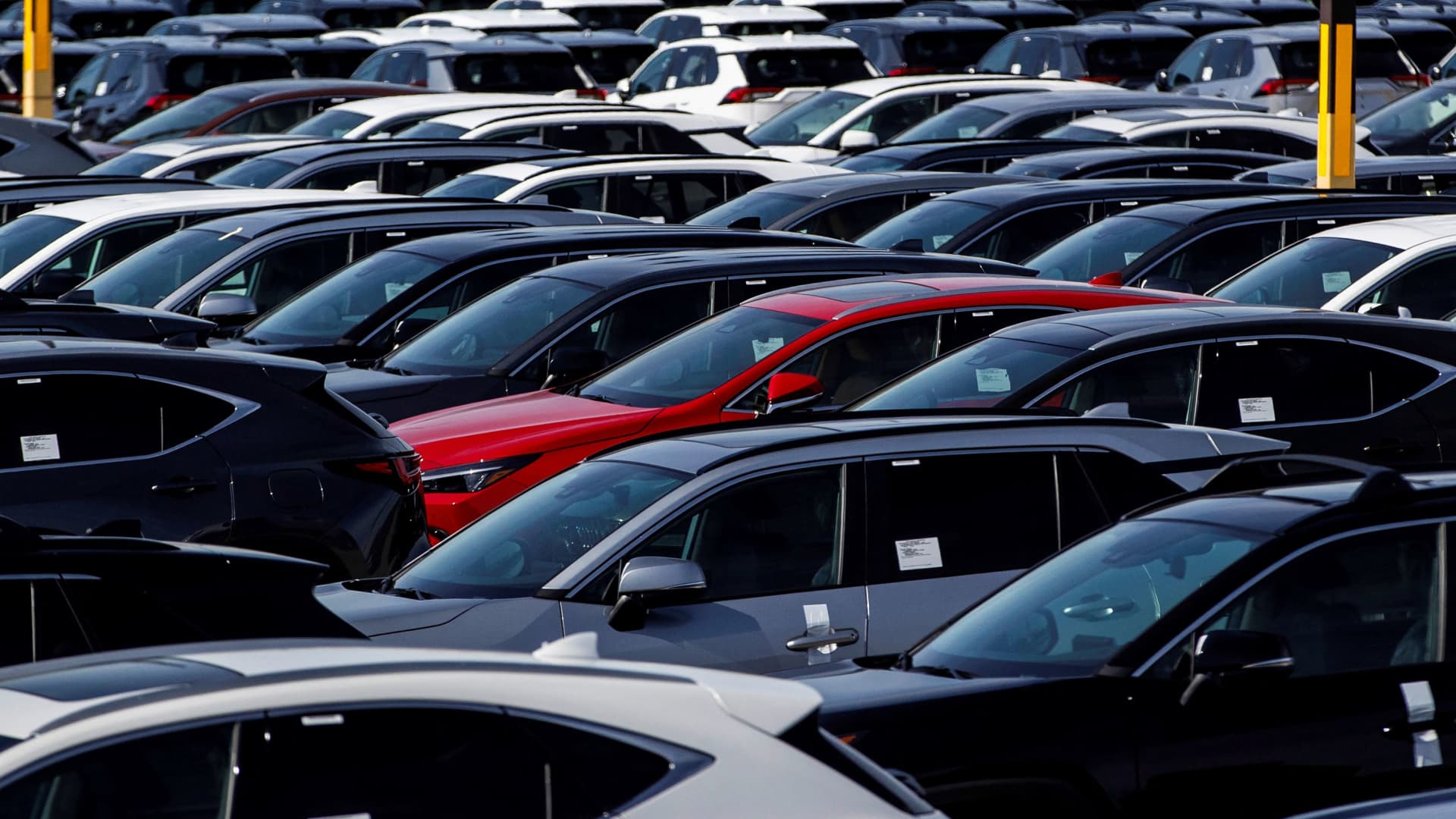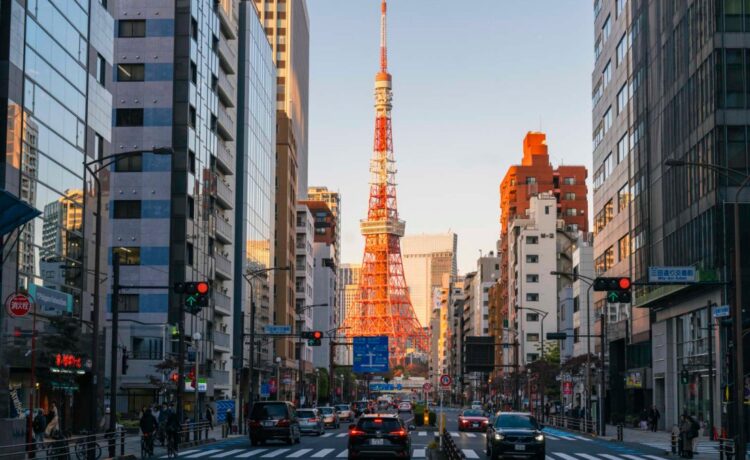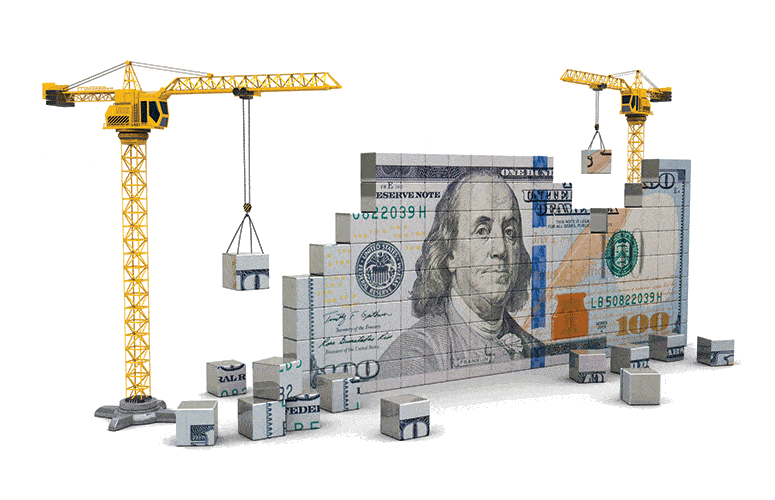This is CNBC’s live blog covering Asia-Pacific markets.
Japan stocks led declines in the region on Friday, tracking steep losses on Wall Street after U.S. President Donald Trump’s tariffs rattled global markets.
Australia’s S&P/ASX 200 fell 2.44% to close at 7,667.8, sliding into correction territory after declining 11% since its last high in February.
Japan’s Nikkei 225 fell 2.75% to close at 33,780.58, down 20% from its recent peak in July while the Topix declined 3.37% to close at 2,482.06.
South Korea’s Kospi slipped 0.86% to close at 2,465.42 and the small-cap Kosdaq added 0.57% to close at 687.39, after the country’s Constitutional Court upheld the impeachment of President Yoon Suk Yeol, ousting him from office.
The decision now starts a 60-day countdown where a presidential election must be held to select the next president. Prime Minister Han Duck-soo has been reinstated as acting president in the mean time.
Hong Kong and China markets are closed for the Qingming Festival.
On Wednesday, Trump unveiled reciprocal tariff rates that over 180 countries and territories will face, raising the risk of a global trade war.
U.S. futures fell after Trump’s tariffs led to the largest decline in U.S. equities in five years.
Futures tied to the blue-chip index lost 100 points, or 0.3%, after the 30-stock average tumbled more than 1,600 points in the prior session. S&P 500 futures and Nasdaq 100 futures each shed 0.2%.
Overnight in the U.S., the three major averages plummeted. The S&P 500 slid back into correction territory, dropping 4.84% to 5,396.52. The Dow Jones Industrial Average tumbled 1,679.39 points, or 3.98%, to close at 40,545.93 and the Nasdaq Composite fell 5.97% to end at 16,550.61, logging its biggest decline since March 2020.
CNBC’s Brian Evans, John Melloy and Pia Singh contributed to this report.
Thailand stocks drop to lowest since early April 2020, dragged by industrials sector
Thailand’s SET Index slid over 2% to its lowest level in five years, dragged by the industrials sector, data from LSEG showed.
Cement manufacturing firm General Engineering PCL was the index’s top loser, plummeting 25%.
Real estate companies Stella X and Triton Holding were also amongst the biggest losers, falling over 17% and 11.11% respectively.
—Lee Ying Shan
Vietnam stocks extend declines, dragged by technology and energy sectors
Vietnam’s stocks slid for the second day, with the Vietnam Index falling 3%, dragged by the energy and consumer cyclicals sectors, according to data provided by LSEG.
Natural rubber company Phuoc Hoa Rubber, Tracodi Construction Holdings, Hoa Tho Textile and Vinacafe Bien Hoa were amongst the top losers, having shed 7%.
—Lee Ying Shan
South Korean equities trade mixed after Yoon’s impeachment
South Korean equities traded mixed after South Korea’s Constitutional Court Friday upheld the impeachment of President Yoon Suk Yeol.
The Kospi slid 0.53% while the small-cap Kosdaq added 0.85%.
In a broadcast on South Korea television, the acting chief of the Constitutional Court Moon Hyung-bae said the decision was unanimous.
—Lee Ying Shan, Lim Hui Jie
Korean won strengthens against the dollar after Yoon impeachment verdict
The South Korean won strengthened 0.94% against the dollar after South Korea’s Constitutional Court Friday upheld the impeachment of President Yoon Suk Yeol.
Yoon was impeached over his imposition of martial law on Dec. 3 in a surprise late-night broadcast, citing the need to protect the country from “North Korean communist forces” and “anti-state forces.” It was the first time martial law was declared in South Korea in over 40 years.
—Lee Ying Shan, Lim Hui Jie
Reciprocal tariffs to cost the tech sector nearly $100 billion, says CreditSights
CreditSights estimated that U.S. President Donald Trump’s “reciprocal tariffs” would cost the technology sector nearly $100 billion based on the proposed rates for each country and the value of U.S. tech imports last year.
The estimate, released in a research note, excludes tariffs already enacted by the U.S., such as a 20% rate hike on China and 25% on Mexico and Canada for non-compliant USMCA goods.
The financial research firm said that the latest round of tariffs would also have a disproportionate impact on smartphones, specifically Apple, given its reliance on China for manufacturing.
It added that while Apple has been diversifying its supply chains to Vietnam and India, this will provide little relief as those countries will have 46% and 26% reciprocal tariffs, respectively.
— Dylan Butts
Several Australian superannuation funds hit by cyberattack
Several Australian pension funds have been hit by coordinated cyberattacks, resulting in the breach of thousands of member accounts, according to local media.
Among the affected are AustralianSuper, Hostplus, Australian Retirement Trust, Insignia Financial and REST, the main industry fund for retail employees.
—Lee Ying Shan
Goldman Sachs cuts oil price forecasts by $5 per barrel
Goldman Sachs slashed its price forecast for both Brent and WTI benchmarks on the back of tariff escalation and higher supply from OPEC+.
“Our annual average forecasts are now $69/66 for Brent/WTI in 2025 and $62/59 in 2026. We no longer forecast a price range, because price volatility is likely to stay elevated on higher recession risk,” the investment bank’s analysts wrote in a note.
Global benchmark Brent slipped 0.41% to $69.85 a barrel, while U.S. West Texas Intermediate futures were 0.45% lower at $66.65 per barrel.
—Lee Ying Shan
Japan auto stocks extend slide in aftermath of Trump tariffs, Toyota shares fall to lowest since September

Vehicles are parked in lots at the Toyota Motor Manufacturing plant in Cambridge, Ontario, Canada, March 13, 2025.
Asian auto stocks continued to fall as investors assess the aftermath of Trump’s tariffs.
Japanese automakers Toyota fell 4.19% to the lowest since last September, while Honda declined 5.30% to its lowest since last December.
Nissan, which has three plants in Mexico, declined 4.04% to its lowest since last December.
Mazda Motor lost 4.28% to notch its lowest in over three years, while Mitsubishi Motor fell over 3%.
South Korea’s Kia Motors, which has a manufacturing plant in Mexico, traded 1.21% lower, while Hyundai Motor fell 1.44%.
—Lee Ying Shan
Stocks tumble as sell-off deepens after Trump’s tariffs
Stocks cratered on Thursday, with the S&P 500 and Nasdaq Composite suffering their worst session since 2020 as investors flee risk assets over concern that Trump’s tariffs will ignite a trade war and spur a recession.
The S&P 500 fell 4.84% to close at 5,396.52, while the Nasdaq Composite lost 5.97% to 16,550.61. The Dow Jones Industrial Average plummeted 1,679.39 points, or 3.98%, to finish the session at 40,545.93.
— Brian Evans
Trump says ‘markets are going to boom’
Trump was asked when leaving the White House on Thursday about the stock market decline, and he indicated that this would be a temporary reaction to the tariffs.
“I think it’s going very well. It was an operation, like when a patient gets operated on, and it’s a big thing. I said this would exactly be the way it is. … The markets are going to boom. The stock is going to boom. The country is going to boom. And the rest of the world wants to see is there any way they can make a deal,” Trump said.
— Jesse Pound













